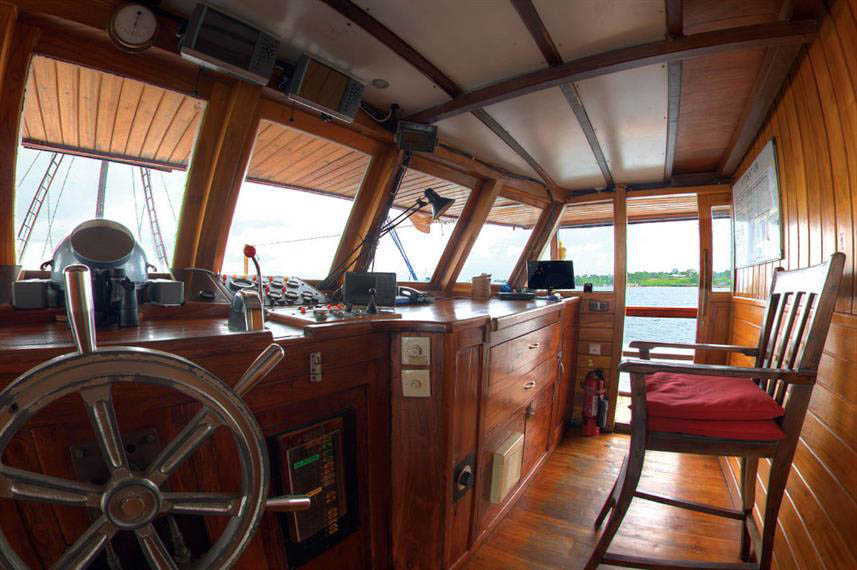Something can always be done to help prepare for marine events such as oil spills and coral and if we don’t put efforts in during our lifetime, the current state will not be any better for the next generations to come. We know that all journeys begin with a single step and it has to start somewhere, so at The World Federation for Coral Reef Conservation we work to ensure our actions will see results within years not lifetimes.
The World Federation for Coral Reef Conservation (WFCRC) was established in 2009 to advance the understanding, use and conservation of coral reefs. We gather and share data, educate and complete outreach work to build active and long term partnerships with divers, conservationists, the science community, local island governments and stakeholders. Their regular and frequent input helps us to sustain a dynamic view of issues through the eyes of our coastal constituencies.
By focusing on real time local issues rather than global issues, we help to address the need to provide developing island nations around the world with first response and action plans necessary to lessen the effects of marine disasters. In so many countries the responsible party does not step up, leaving the cleanup to local stakeholders that have neither the expertise nor the knowledge of how to handle such a disaster.
You can support events like our “The R.E.E.F.S Gala”(Research Enhancement Engineering for Seascapes) to be held in St. Maarten that features two days of adventure, culinary events, speakers and world class entertainment.
Details will be available as the event draws near, so stay tuned on our website and Facebook page.
Our grass roots plan of action is to get information into the hands of people who will be affected the most. We need contacts throughout the world to get our response plans to our end users and contacting people of like interest and concerns is paramount for us to reach the underserved nations of the world. By sharing information with people who are affected by coastal environments throughout the world, we can make a difference one location at a time. We are currently seeking sponsors and support from concerned people who believe we have a responsibility to share what we know about coral reef conservation and assist those who need our help the most.
Have you seen our geo portal and a digital library based on location on our website?
We bring together current data and observations, use GIS/GPS current technology, UAV’s and cutting edge internet communication to provide the “real time” data necessary to make informed and timely decisions regarding coral reef health and other coastal aquatic related issues. Shared information will enable the forecasting of potential trends, evaluate policy and development options and facilitate improved coastal management within a region.
The coastal communities and national economies of many regions are poised to sustain economic losses if current trends in coral reef degradation continue. Coral reefs, such as those found at the Pacific islands that many New Zealanders visit for their holidays, provide valuable goods and services to support local and national economies. Degradation of such coral reefs can lead to significant economic losses, particularly in the coastal areas of developing countries. Such losses include but are not limited to:
- Loss of fishing livelihoods
- Malnutrition due to lack of protein
- Loss of tourism revenues
- Increased coastal erosion.
Analyses carried out by the Reefs at Risk project indicate that Caribbean coral reefs provide goods and services with an annual net economic value in 2000 estimated at between US $3.1 billion and US $4.6 billion from fisheries, dive tourism, and shoreline protection services.
As marine disasters continue to occur, oil spills are the number one preventable events that we can plan to minimize their effects on coral reefs and coastal environments by supporting the development and sustainability of a national first response and actions to address these events. We still have much to learn from the Deep Water Horizon spill in the Gulf of Mexico. With repeat offenders continually adding to the problem, such as the recent BP spill in Michigan and the Oil spill in Galveston Bay in the Gulf of Mexico, the ability of marine organisms to recover from a spill is greatly compromised.
Our oceans are a beautiful example of the wonderful planet we call home and we strive to preserve precious wildlife that also call it home.
Please help us share what we know about recovery and management of our marine treasures, it’s not rocket science it’s just the right thing to do.
Go to www.wfcrc.org or our Facebook page and join us.
The only thing necessary for the triumph of evil is that good men do nothing”….Edmund Burke










